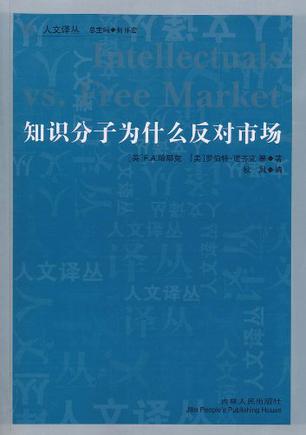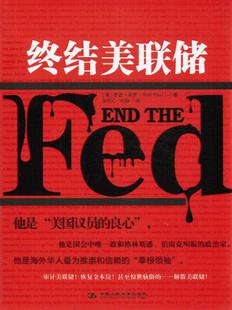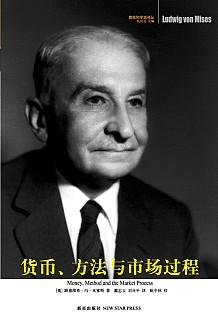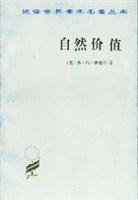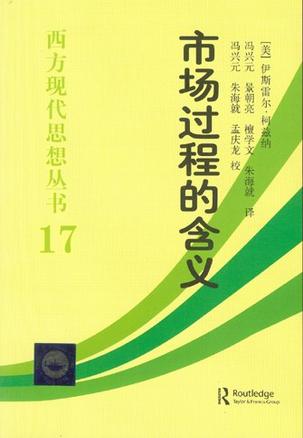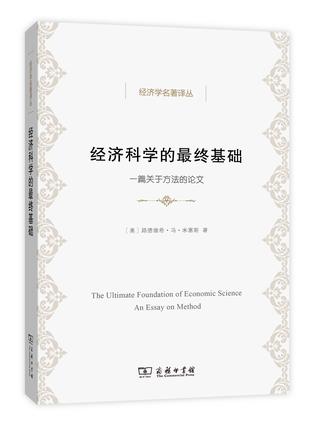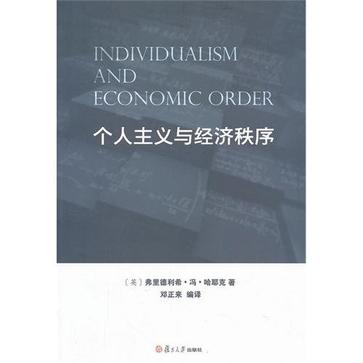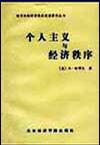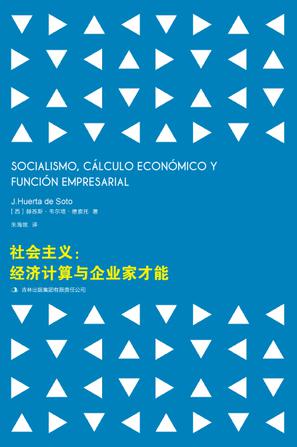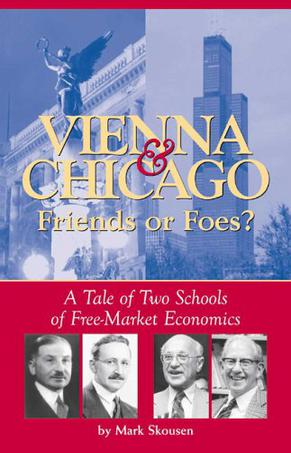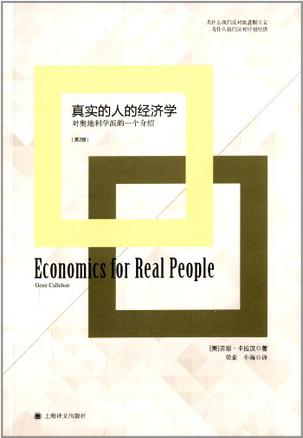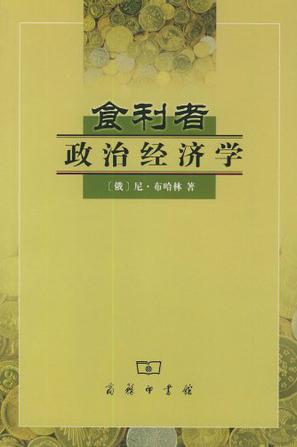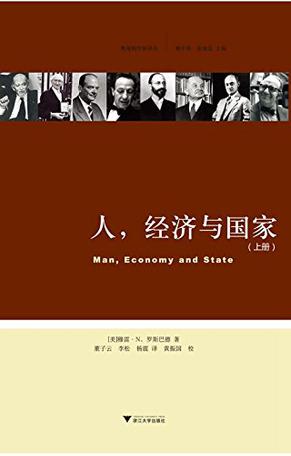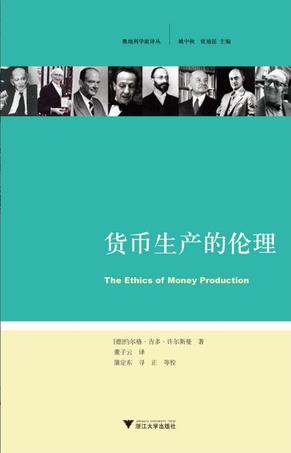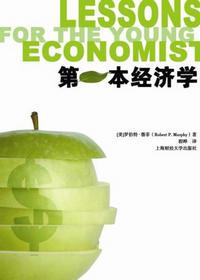欢迎来到相识电子书!
标签:奥地利学派
-
Defending the Undefendable
Professor Block's book is in a new edition from the Mises Institute, completely reset and beautifully laid out in an edition worthy of its contents. It is among the most famous of the great defenses of victimless crimes and controversial economic practices, from profiteering and gouging to bribery and blackmail. However, beneath the surface, this book is also an outstanding work of microeconomic theory that explains the workings of economic forces in everyday events and affairs. Murray Rothbard explains why: "Defending the Undefendable performs the service of highlighting, the fullest and starkest terms, the essential nature of the productive services performed by all people in the free market. By taking the most extreme examples and showing how the Smithian principles work even in these cases, the book does far more to demonstrate the workability and morality of the free market than a dozen sober tomes on more respectable industries and activities. By testing and proving the extreme cases, he all the more illustrates and vindicates the theory." F.A. Hayek agreed, writing the author as follows: "Looking through Defending the Undefendable made me feel that I was once more exposed to the shock therapy by which, more than fifty years ago, the late Ludwig von Mises converted me to a consistent free market position. … Some may find it too strong a medicine, but it will still do them good even if they hate it. A real understanding of economics demands that one disabuses oneself of many dear prejudices and illusions. Popular fallacies in economic frequently express themselves in unfounded prejudices against other occupations, and showing the falsity of these stereotypes you are doing a real services, although you will not make yourself more popular with the majority." The contents of this book include: Foreword by Murray N. Rothbard Commentary by F.A. Hayek Introduction Sexual The Prostitute The Pimp The Male Chauvinist Pig Medical The Drug Pusher The Drug Addict Free Speech The Blackmailer The Slanderer or Libeler The Denier of Academic Freedom The Advertiser The Person Who Yells "Fire!" in a Crowded Theatre Outlaw The Gypsy Cab Driver The Ticket Scalper The Dishonest Cop Financial The (Non-Government) Counterfeiter The Miser The Inheritor The Moneylender The Non-Contributor to Charity Business and Trade The Curmudgeon The Slumlord The Ghetto Merchant The Speculator The Importer The Middleman The Profiteer Ecology The Stripminer The Litterer The Wastemakers Labor The Fat Capitalist-Pig Employer The Scab The Rate Buster The Employer of Child Labor 232 pp. (pb) SUPPORTERS "Looking through 'Defending the Undefendable' made me feel that I was once more exposed to the shock therapy by which, more than 50 years ago, the late Ludwig von Mises converted me to a consistent free market position. Even now I am occasionally at first incredulous and feel that "this is going too far," but usually find in the end that Block is right. Some may find it too strong a medicine, but it wills till do them good even if they hate it. A real understanding of economics demands that one disabuses oneself of many dear prejudices and illusions. Popular fallacies in economics frequently express themselves in unfounded prejudices against other occupations, and in showing the falsitty of these stereotypes Block is doing a real servic, although he will not make himself more popular with the majority." --FA Hayek "Judging from the outraged responses in many libertarian quarters, many of 'our people' are not ready for this exciting and shocking adventure. Since libertarians are, or are supposed to be on the forefront of thought, since their whole lives have been an intellectual adventure in many ways, the hostility becomes even more mysterious." --Murray N. Rothbard "There are things that I strongly agree with and things that I strongly disagree with, but the book thoughout is amusingly and sharply reasoned, couragous and always provocative." --Henry Hazlitt "Many years ago Hazlitt's little masterpiece, Economics in One Lesson, demonstrated how, in order to measure the consequences of economic activies, one must look beyond their immediately obvious effects to thir secondary effects. Here Professor Block sets out highly specific, and sometimes shocking examples of Hazlitt's thesis. By concentrating on the positive economic contributions of extreme cases, he forces the reader's consideration and greater appreciation of these principles." --Robert D. Kephart "It is a magnificent book, a trailblazer. I would call it ;Drano for Clogged Minds,' except that Drano is neither amusing nor stimulating, and this book is both. I suggest buying two copies: one for yourself and one for the person you want most to catch up with you." --Roger Lea MacBride "...More than almost any current book, DTU will wake the reader from his dogmatic slumbers. It is eminently readable, challenging, and provocative." --John Hospers "Startling and illuminating! Block's lucid defenses often convince: sometimes they lead us to sharpen our attack. In either case, the reader cannot fail to be instructed and challenged by this mind-stretching, provocative, and occasionally infuriating book." --Robert Nozick "What the critics have missed is that a book of libertarianism, not Objectivism, not Christianity, DTU used the most effective method for illustrating and teaching moral principles. Shock your friends and educate them." --Don Ernsberger, S.I.L. "This witty and wonderful book is a veritable manual of the 'joy of freedom.' IUf we were only half as interested in liberty as in lust, we would not have half the problems we have." --Dr. Thomas S. Szasz "The most entertaining and one of the most instructive economics books I've ever read. Block's unique style helps you see what's going on around you quickly and clearly. The book is terrific. Taking the most extreme examples possible and clarifying them will do more to bend the reader's economic thinking than a slow steady course in good economics." --Harry Browne "We can congratulate Dr. Block for some iconoclastic and courageous interpretations." --Albert Ellis (psychologist) "After reading Block's book, we recognize the pimp as an honest broker and the uncorrupted cop as the Nuremberg defendant who always followed orders. We are reminded that strip mining of coal allows miners to escape black-lung disease and cave-ins... Block gives the reader succinct yet penetrating criticisms of the Federal Reserve System, and the Keynesian paradox of savings. His chapter on charity is the best modern defense of social Darwinism that I have ever read." --Williamson Evers "It is a brilliant, relentlessly argued book, pushing the libertarian case to its extreme limits...take seriously Ayn Rand;s dictum that one should be willing to defend the least attractive instance of a principle, and has done precisely that." --Roy Childs (Editor: Libertarian Review) "Shatters, one by one, each of our liberal steroetypes. It's a pleasure to read and a treasure trove of ammunition for the defender of the free market." --Tom G. Palmer (The New Gaurd) "toleration of unpopular religious and cultural groups has always been one of the chief tenets of classical liberalism...Block carries this libertarian principle to its logical and radical conclusion: toleration of all non-aggressive pursuits." --Lawrence White (Harvard Political Review) "A remarkable book. I found myself agreeing with Block for most of the time, and his argument is often ingenious. Spend a pleasant evening reading aloud some of his chapters (they are really quite short)." --Henry Meulen (The Individualist) DETRACTORS "There can be no question of my writing a testimonial on behalf of this book." --Nathaniel Branden "Defending the Undefendable-A doomed attempt, one would say. Like thinking the unthinable, uttering the unutterable, or calculating the incalculable. As the philosopher remarked, wherefor one cannot speak, thereabout one had better keep quiet. This assemblage of defences cannot (can it?) be facetious since it is ushered in by the author;s pious reference to a 'passion fro justice... Rather non persuasive are the cases made out for the Dishonest Cop, the Speculator in food, the Non-Contributor to Charity, the Stripminer, the Drug Pusher, the Denier of Academic Freedom, and the Person who yells 'fire' in a crowded theatre. A passion for justice ought to inspire one to greater efforts." --D.J. Enright (London Times Literary Supplement) "...A positive menace to the libertarian movement. His smart-alecky, sensationalist style, the silly and false social and psychological assumptions he uses to back up some otherwise (mostly) valid political and economic points, the frivolous and insensitive attitudes he displays toward serious human problems all serve to confuse and distract from the valid points. Most people will be difficult to convince on rational political grounds without obscuring the issue with other half-baked, offensive, and unnecessary arguments. The book will be offensive to people not just because his general attitude will be interpreted as callous, asinine, and an affront to human dignity. It will surely reinforce the worst stereotypes people have about capitalists." --Sharon Presley (Laissez Faire Books) "..The wrong book at the wrong time...An absolutely mad way of introducing someone to libertarianism...I am convinced that it is probably a short run strategic disaster. One needs not only a steel will based on solid libertarian premises to accept Professor Block's message, but one needs a cast iron stomach as well. Those whom he defends are often, if not usually, the dregs of society: we could even say the very scum of the earth." --Walter Grinder (Libertarian Review) "DTU is a work of unrealized potential. The editing is sloppy. And the quality of the writing varies from chapter to chapter. Many good arguments, and indeed the book itself, founder over a simple misconception: Block is misusing the word her...He is not consistently attentive to detail, nor is he very ambitious in enriching his rich thesis with examples and anecdotes. If he had attended better to the art of writing and spared us the silly insistence of making all of society's rogues into heroes, thes his very important thesis might well have become a very important book." --Jamaes D. Davidson (Libertarian Review) "Not only does he defend prostitutes, pimps, counterfeiters, ticket scalpers, slumlords, blackmailers, libelors, stripminers, letterers, and scabs (among others), he actually has the temerity to call them heroes! Block even has the gall to challenge the most enduring shiboleth of higher education, academic freedom." --Dan C. Heldman (Universitas) "The polarization of opinions on Block's book should not be surprising. It is reflection of the book's schizophrenic nature-a bizarre combination of both excellent and horrible elements. Apparently the endorsers chose to consider only the Dr. Jeckyll side of DTU and either ignored or failed to take seriously Mr. Hyde." --Sharon Presley (Reason) "Political and economic defense of the voluntary activities of society's 'scapegoats' -pimps, slumlords, moneylenders, etc. Done in a sensationalistic style, much of the reasoning is questionable and unnecessarily offensive. Not a good introduction to libertarianism." --Laissez Faire Books Catalogue "Block defends some of the silliest ideas in support of an essentially good cause...He raises some stimulating issues, even if in an intellectually inadequate fashion...A foolish consistency may be the 'hobgoblin og little minds,' as Emerson said, but serious inconsistancy (as in this book) is the downfall of many theories about morality and law." --Tibor Machan (World Research Ink) -
知识分子为什么反对市场
自由市场大幅度地改进了世界各地民众的生活境遇,然而,那么多的知识分子又那么鄙视、厌恶甚至憎恨自由市场。为什么?哈耶克、诺齐克、弗里德曼、斯蒂格勒、布坎南等当代最杰出的政治哲学家和经济学家一齐来会诊这种奇怪的心理症状。 -
终结美联储
大多数美国人认为,美联储是一个不可或缺的机构,但美国共和党众议员罗恩•保罗却给出了相反的结论。在本书中,保罗与两任美联储主席格林斯潘和伯南克之间展开了针锋相对的对话,他以自己的亲身经历揭示了美国金融界与政界之间千丝万缕的联系,对近50年的世界经济局势和美国经济政策给予了详细的分析,并发出最强烈的呼吁:必须终结美联储。 -
美国大萧条
著名经济学家张维迎教授撰序推荐: “当我们正在经历着二战以来最为严重的世界性经济危机的时候,我建议所有经济学家、政府官员和媒体人士,甚至普通大众,都读一读罗斯巴德的《美国大萧条》,因为它有助于我们反思这次危机的真正原因,思考政府采取的政策是否恰当,也有助于未来不再犯同样的错误。” 解读20世纪初美国经济灾难的前因后果 探究经济世界繁荣与衰退交相罔替的来龙去脉 《美国大萧条》是奥地利经济学派的重要著作。作者根据米塞斯关于商业周期的理论,细致而全面地分析了美国20世纪20至30年代的经济状况,对那场发生在上世纪初的经济危机进行了深入的探讨。巴斯罗德认为那场大萧条不是因为政府实行了“自由放任主义”的政策引起的,而恰恰相反正是政府过多地干预经济使然;对于金融领域,巴斯罗德采取了反中央银行的立场,批评了中央银行违背金本位原则,而对金融货币领域加以干预的做法,认为这样对长期的经济发展是非常不利的。 20世纪二三十年代,一场美国大萧条震动了世界。 是“自由放任”之罪?抑或是“过度干预”之弊? 怎样的人为动机使得经济数据发生了变化? 历史轮回之际, 商业周期理论是否依然有效? 8000亿救市美元何时生效? 政府之手与市场之手应当扮演何种角色? 而我们,又当如何面对当下的危机? -
货币、方法与市场过程
《货币、方法与市场过程》是米塞斯逝世后由他的夫人编辑的一本书,收录了米塞斯的多篇重要论文,其权威性和学术价值得到了国际经济学界的公认。 本书概括地反应了米塞斯最重要的思想观念,是了解米塞斯思想的最好门径,系首次译为中文。 本书被www.intellectualconservative.com网站列为最重要的25本保守主义哲学与观念著作之一。 -
自然价值
维塞尔继承和发展了门格尔的主观价值论。他和门格尔一样,以人对满足其需要的财物的效用的主观评价来说明价值。他最先提出“边际效用”一词,说明价值是由“边际效用”决定的。照维塞尔的解释,某一财物要具有价值,它必须既有效用,又有稀少性,效用和稀少性相结合是边际效用,从而是价值形成的必要和充分的条件。他所谓的“边际效用”就是人们在消费某一财物时随着消费数量的增加而递减的一系列效用中最后一个单位的消费品的效用,即最小效用。该财物每一单位的价值都由边际效用来决定,其总价值等于边际效用与单位数的乘积。维塞尔把这种由边际效用决定的价值叫做“自然价值”。维塞尔还把边际效用理论应用于解释分配,并提出所谓“归属论”。他认为生产财物即生产资料的价值是由他们所生产的消费财物的边际效用决定的,这价值应按各个生产要素在生产中的作用或“贡献”大小,以一定份额“归属”于各有关生产要素,从而构成各生产要素的收益,工资、利息、地租就是劳动、资本、土地各生产要素的收益,这些收益归根结底都是主观评价的结果。 维塞尔用主观心理来解释价值、利息、地租等,完全抹煞了这些经济范畴的客观性和历史性,掩盖了它们的真正来源和本质,其目的就在于否定马克思主义劳动价值论和剩余价值论,为资本主义制度辩护。 -
市场过程的含义
本书既是对经济理论的现代历史、也是对奥地利学派经济学当代复兴的一个贡献,它详细讨论了奥地利学派经济学在当代的发展及其面对的问题。 -
经济周期与宪政秩序
《经济周期与宪政秩序》收录的是华人哈耶克学会2009年学术年会的部分论文,主要涉及经济周期研究、政法理论研究、经济理论研究等内容。从某种意义上说,这些论文代表了国内致力于奥地利学派及相关领域研究的学术水平。2009年9-10月,华人哈耶克学会内部曾围绕“善与自发秩序”主题在网上进行过一次热烈的对话和论辩。《经济周期与宪政秩序》的最后收录了这次网络对话的部分记录,与之前的论文相比,不难从中读出不一样的趣味。 -
经济科学的最终基础
本书是米塞斯最后一本论著。书中论证了这样一个命题:经济学是一门以人类行为作为基础的科学。米塞斯认为,自从他的《人类行为》出版以后,经济学家和科学家都误解了他提出的经济学是科学的主张,因为他们把经济学视为认识论上的实证主义,认为经济学这门“科学”的基础仍然更多地植根于哲学,而不是实际的科学。在本书中,米塞斯认为,经济学之所以是科学,是因为人类行为是生活的自然秩序,恰恰是人类行为决定了市场和资本决策。米塞斯认为,这些联系可以在科学上加以证明,他由此而断定,既然经济学的基础是人类行为,经济学本身无疑就是一门科学,而不是一种意识形态,不是一种形而上学的学说。本书一向被誉为米塞斯最富于激情的著作,综合阐述了他此前著述中所有相关的主题。 -
个人主义与经济秩序
F.A.哈耶克是20世纪西方最重要的自由主义理论家、经济学家和政治哲学家之一,诺贝尔经济学奖获得者。在这本论文集中,他围绕着同一个议题,在由道德哲学、社会科学研究方法,到经济政策、经济学理论的诸领域内展开论述。本书的部分文章延续了其经典著作《通往奴役之路》一书中对自由市场与计划经济的探讨,另一些则是较为专业的论文。 -
社会主义:经济计算与企业家才能
上世纪二、三十年代,以米塞斯和哈耶克为一方,以兰格等社会主义计划手段的支持者为另一方,就社会主义经济计算之可能性展开了一场意义深远的大辩论。奥地利学派的思想家们卓越的理论洞识,推动了新的分析工具的形成,在学科内外都产生了广泛、深刻的影响。如今应该没有多少人还会怀疑这一结 论:中央计划经济不能解决资源的合理配置问题。然而在经济问题频现的时代,或对于在发展中的转型国家,政府的经济刺激措施、宏观干预政策仍屡屡回潮,对这场论辩做出全面的评估仍是十分必要的。 本书是当代奥地利学派经济学的重要著作,是对米塞斯企业家才能理论和哈耶克知识理论的拓展和应用。德索托完整地回顾了论辩始末,并对兰格的思想历程进行了详尽的考察和批判性研究。他揭示了各种形式的国家干预主义的危害,并深刻地指出“自由”、“道德”与“效率”的内在一致性,认为“对企业家才能的抑制,将阻碍经济计算所需的信息的产生,从而将导致社会的失调”。 -
Vienna & Chicago, Friends or Foes?
In his new book, "Vienna and Chicago, Friends or Foes?" economist and author Mark Skousen debates the Austrian and Chicago schools of free-market economics, two schools in constant, heated disagreement in their theories of money, business cycle, government policy, and methodology. -
真实的人的经济学
供给和需求的均衡点从来不会实现,而“经济学”却假设供给等于需求的均衡点;明明并非人人自私自利,而“经济学”却假设人人都追求“利益最大化”;大量的论文用数学描绘那些假设世界中的均衡,然而它对于我们解释人的行为却无能为力。难道我们必须活在假设里,而不能“睁眼看世界”吗? 本书将从奥地利经济学派的角度给我们来一场头脑风暴,让我们一个能够解释现实的、描述真实的世界、写给真实的人的经济学。 与古典经济学派旨趣大相径庭,曾被排挤在主流经济学之外的奥地利经济学派是迄今为止最被中国人忽略、而在国外早已普及的经济学派,是当今中国人最需要了解的经济常识。代表人物米塞斯、拉赫曼、门格尔、哈耶克。 -
米塞斯大传
米塞斯(Ludwig von Mises,1881-1973),20世纪重要的经济学家、思想家,亚当·斯密之后对市场经济理论贡献最大的人。他的思想不合潮流,却是矫正时代前进方向的指南。 《米塞斯大传》详细描述了米塞斯漫长坎坷的一生,揭示出他的思想发展轨迹,以及与时代的碰撞。同时本书叙述了以米塞斯为中心的奥地利经济学派的发展历程、欧洲和美国的经济思想史,也生动呈现了米塞斯所经历的时代的风云变幻。可以从中窥见那个时代最显耀的人物——门格尔、庞巴维克、维塞尔、熊彼特、罗宾斯、哈耶克、凯恩斯等杰出人物之间的思想交锋和充满戏剧性的人际交往。 伟大的生命成就精彩的传记。本书学术性与可读性俱佳,是目前最详实,最受好评的米塞斯传记。 -
社会主义
《社会主义:经济与社会学的分析》为《西方现代思想丛书》的第十六种,作者认为:要进行合理的经济计算,必须有某种形式对不同的商品进行评估,而取消市场则不可能在性质不同的生产过程、不同产品之间进行成本和效益的比较,必然造成经济生活的混乱和浪费。 -
食利者政治经济学
《食利者政治经济学奥地利学派的价值和利润理论》内容包括马克思以后的资产阶级政治经济学、边际效用理论和马克思主义理论的方法论基础、价值理论、利润理论等。 -
人、经济与国家
《人、经济与国家》是穆雷·N. 罗斯巴德的代表作之一,也是战后奥地利学派复兴的标志性作品。本书以通俗易懂的方式解释了路德维希·冯·米塞斯在《人类行为》中提出的理论框架,一直以为被认为是奥地利学派经济学最经典的作品。 -
货币生产的伦理
金融危机之后,为避免实体经济陷入低迷,世界各国(包括中国)都采取了一系列刺激政策来恢复经济和信心。这些政策当中就包括以或明或暗的方式增加货币供应量。这样做可谓立竿见影,但可能随之而来的通货膨胀却不能不让人担忧,一旦猛虎出笼,为害更甚。那么通货膨胀的危害在哪里,根源又在何处呢?对此,本书给出了一个大胆然而彻底的解决方案。一般人们都关心货币取得和使用的伦理问题(所谓“君子爱财,取之有道”),也关心货币供应量是过多还是过少,但少有人会对国家发行货币、规定法定货币的行为本身产生怀疑,即货币生产的伦理问题。作者从奥地利学派主张私有产权和市场机制的基本观点出发,对国家垄断货币生产的伦理正当性提出质疑,指出法定货币才导致了法定或授权的通货膨胀(fiat inflation),这进而导致一系列在社会、文化乃至精神方面的严重后果。作者呼吁变革现有的货币体制,认为解决之道并不是要废弃纸币,而是要废除国家在货币生产上的一系列特权,允许公民自由选取货币。 -
第一本经济学
本书是一本独具特色的基础经济学读本,由奥地利经济学派新锐代表人物罗伯特·墨菲(Robert P.Murphy)博士撰写。墨菲博士深通写作之道,他用出神入化的笔触向普通民众讲述关于真实人的经济学,逻辑超清晰,框架超优美,文字温馨而迷人,不仅实现了“朴素而传统”的经济学与奥地利学派思想的完美融合,而且为学生打下了继续学习高级经济学的基础。
热门标签
下载排行榜
- 1 梦的解析:最佳译本
- 2 李鸿章全传
- 3 淡定的智慧
- 4 心理操控术
- 5 哈佛口才课
- 6 俗世奇人
- 7 日瓦戈医生
- 8 笑死你的逻辑学
- 9 历史老师没教过的历史
- 10 1分钟和陌生人成为朋友


